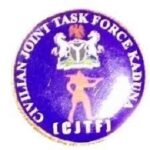Money Laundering: EFCC switches attention to real estate

The Economic and Financial Crimes Commission (EFCC) says the commission is beaming its searchlight on suspected fraudsters using real estate for money laundering.
Chris Mishela, a lawyer with the commission, disclosed this in Benin during a training for journalists on effective reporting of economic and financial crimes.
Mishela said one of the objectives of the training was to keep journalists abreast of the framework of new anti-money laundering Act 2022 and the role they were expected to play.
“As it is, I am talking about Abuja, you see so many estates coming all over Abuja and more.
“The sources of these funds are unlawful; the funds are illegally gotten either from government or from international crime that is used to launder through estate business.
“So, EFCC is actually working to look into that dimension and the new money laundering Act has provided an opening for the government to look into the aspect of real estate as we have seen under the Act.
“Real estate is one of the designated and non-designated professions that is also under our obligation, under the establishment to do a full disclosure.
“It is an investigation that is going on; not that we have identified any specific entity to these proceeds of crime, but we are working to unravel what those areas are,” he said.
The EFCC official, who spelt out the roles and responsibilities that individuals and corporate organisations were expected to play under the new Act, said “it’s now a crime to make cash or receive cash payment above N5 million”.
He said the need to make the public aware of the expanded scope of the Money Laundering (Prevention and Prohibition) Act 2022 as against the repealed Money Laundering Prohibition Act 2011 necessitated the workshop.
He noted that though ignorance was not an excuse in law, the commission felt individuals and corporate bodies including the media should be brought to the know about the law.
In her presentation, Mr Dele Oyewale, the Assistant Commander, Public Affairs Unit of EFCC, Abuja, tasked journalists on investigative reporting, to provide leads for the commission.
Investigative reporting, he said, was the pride of journalism profession, calling on the participants to indulge in journalism of penetration, exploration, intensification and exhaustive inquiries.
Mrs Oluwakemi Olawoyin, Head, Cyber Crimes Unit in EFCC, Benin, made a presentation on risks and benefits associated with digital payment system, where she highlighted tactics for safe transactions on the various e-business platforms.








